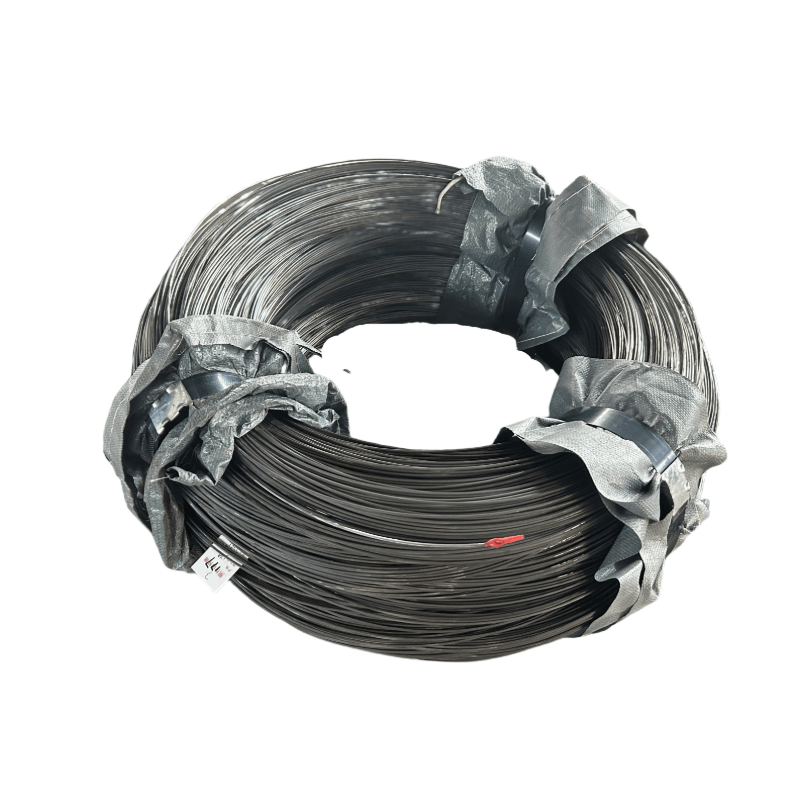Can Carbon Steel Wire be Used in Outdoor Applications and How Does it Resist Corrosion?
Introduction
Used in various industries and is ideal for fencing, carbon steel wire offers tensile strength at an economical cost. But to use it for outdoor applications the corrosion resistance has become a problem. This article explores how carbon steel wire stands up to outdoor environments and the ways in which it fends off corrosion, making it a favored choice for long-lasting performance when left out in the open.
Carbon Steel Wire for Outdoor Issues
Containing iron as its primary element, when combined with small quantities of carbon and manganese results in what we all know to be carbon steel wire the mixture has some very unique properties. When it comes to physical properties, having a high density of 7.8-8.1 grams per cubic centimeter makes for some heavy-duty applications for this metal. It is best for use when you require a carbon steel wire that provides high tensile strength of up to 2,200 MPA.
The mechanical properties of carbon steel wire also make it flexible. It has high ductility wonder, pulls it into thin wires without breaking and incredible versatility property because this material can appear back to its essential shape after distortion. Its high tensile strength and zinc coating resistance are ideal to work outdoors, making carbon steel wire for outdoor use.
Carbon Steel Wire Has Good Strength and Corrosion Resistance
Carbon steel wire, while exhibiting significant natural corrosion resistance due to the presence of chromium and other protective factors in its composition, is susceptible to rusting from outdoor elements. However, it is frequently used in live outdoor settings coated with protective agents to help make the most of its life. One common practice to achieve this is the use of galvanization, a process which coats wires in an additional layer of zinc. Additional treatments such as oil-tempering and cold drawing improve not only the wire's physical characteristics, but also its corrosion resistance.
The surface nature of carbon steel wire significantly impact its corrosion resistance properties. How the wire interacts with corrosive agents is significantly affected by texture of steel, surface energy, and morphology. First, the uniform coating and well-textured surface may slow down corrosion initiation more significantly than increases in superficial energy can provide build of protective oxide layers lowering reactivity of a wire with environment.
Standard and Specifications in the Industry
ASTM 1007 is the carbon steel wire specification intended for use in applications such as wire rope. The specification covers uncoated and metallic coated cold-drawn carbon steel (hereafter referred to as wire) produced in the following classes of strength:Zero Draw;Quarter Hard up to Full Hard. It establishes dimensional tolerances, mechanical properties, chemical requirements (including coating requirements for galvanized products), and supplementary inspection. Compliance with these standards helps to ensure that the carbon steel wire being used outside functions as it should.
Appropriate Uses of Carbon Steel Wire in Outdoor Settings
Because carbon steel wire has high strength, and good durability it is going to be widely used when using outdoors applications. It is used in construction and infrastructure as reinforcement, fencing or as supporting material the structural frameworks. It is used in the automotive and transportation industries for suspension systems as well as agricultural and horticultural handing applications, like fencing or trellis systems. Also, the utility and energy industries need carbon steel wire for cables (in high-alloy steels) to support the towers of power line.
Conclusion
As such, carbon steel wire possesses an attractive combination of strengths and ductility for use outdoors at low cost. Its natural resistance to corrosion, combined with protective treatments and coatings ensure it can stand up to the challenges of our weather. Carbon steel wire is widely used because of its distinct advantages, and industry standards such as the ASTM A1007 specification help in securing quality and performance for multiple end-uses. As we delve into the surface properties of carbon steel wire and treatments for it, corrosion resistance will only increase favoring its more outdoor applications.

